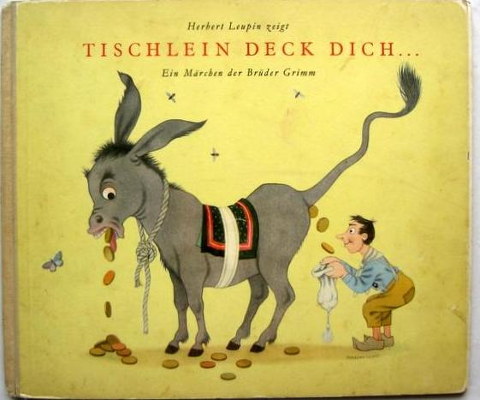

THE EPO will have a new President in just over 8 months from now. The 'Club Med' series was intended to help readers familiarise themselves with this man and today we continue the latest series, which is to some degree based on the official Campinos CV in Spanish. [PDF]
"First Angola, now Brazil. Any other former Portuguese colonies left in the pipeline?"In part 1 (published last night) we presented a very short introduction. Last night we also saw this new article about further rushed examination, as explained André Venturini from DANIEL Legal & IP Strategy, for a former Portuguese colony, this time Brazil. To quote: "A Rule setting forth the acceptability requirements of this PPH program is yet to be published, but the BRPTO has already anticipated that this will be a pilot program with a limit of 300 applications per year. Moreover, only those patent applications related to medical devices and general chemistry would be allowed to participate."
First Angola, now Brazil. Any other former Portuguese colonies left in the pipeline? Either way, let's proceed with part 2.
"For some reason, Mr. Campinos does not appear to be particularly keen to advertise his previous career in banking."During the time of the Angola civil war it appears to have been heavily involved in the financing of arms sales from Russia to Angola.
"The "Angolagate" Trial" by Paula Roque, an article from November 10th 2008, says: "The investigation revealed, amongst other things, how more than $21 million worth of illicit arms sales from Russia to Angola were transferred through Portuguese banks, in particular the state-run Caixa Geral de Depositos, and Banco Comercial Portugues."
In more recent years CGD has been named in connection with financial shenanigans in Angola and Portugal involving the Dos Santos clan. See "Investigation into Isabel dos Santos’ Portuguese investments" (16th of October, 2015) and "President Dos Santos Illegally Inflates Daughter's Fortune" (7th of December, 2015).
For some reason, Mr. Campinos does not appear to be particularly keen to advertise his previous career in banking. His carefully preened public image these days is that of an expert in IP matters, but his curriculum vitae indicates that his expertise in these matters is limited to the area of trademarks. He does not appear to have any particular experience in the area of patents.
Of course none of this disqualifies him as a potential President of the EPO, but it is interesting to note that the choir of cheerleaders supporting him were keen to stress his IP expertise and his experience of running an international organisation supposedly in contrast to his only competitor, the ICC judge Mr. Tarfusser.
"Maybe Tarfusser's impressive professional record and his experience as a public prosecutor made some members of the EPO's Administrative Council nervous that he might take his new job at the EPO too seriously and start asking awkward questions or poking his nose into things that are supposed to remain closed secrets."This seems rather one-sided and unfair to Tarfusser who served at a senior level in the ICC which is an international organisation with 124 member states compared to the 38 member states of the EPO.
It is also known that during his time as Chief State Attorney in Bozen/Bolzano the working practices of the Office of the State Attorney in South Tyrol were radically restructured. In fact the organisational model developed under his guidance is now considered as the standard for the entire justice administration system throughout Italy. So Tarfusser was not just a "courtroom judge" lacking experience in managerial and administrative matters.
Throughout his career he appears to have been heavily involved in the managerial aspects of administrative and judicial bodies.
Tarfusser’s work as Public Prosecutor included a number of investigations and trials encompassing crimes against individuals; crimes against the state, including terrorism; crimes against public administration such as extortion and corruption; trafficking; smuggling and European Union fraud; and organised crime such as money laundering.
During his career he has lectured at a number of law faculties within Italy and has been appointed to a number of rogatory commissions in Europe, Belarus and the Dominican Republic.
In 2016 he was awarded an Honorary Doctorate of Laws by Edge Hill University’s Department of Law and can be seen speaking on video here.
"Campinos seems to have been hand-picked by the Administrative Council as a "safe pair of hands" and as part of a carefully crafted plan to ensure that as much dirt as possible from the Battistelli era at the EPO is safely swept under the carpet and kept away from the prying eyes of public scrutiny."Maybe Tarfusser's impressive professional record and his experience as a public prosecutor made some members of the EPO's Administrative Council nervous that he might take his new job at the EPO too seriously and start asking awkward questions or poking his nose into things that are supposed to remain closed secrets.
Campinos on the other hand is a long-standing member of the same "golden circle" as Battistelli composed of the directors of national IP Offices who see the EPO purely in terms of a money-making machine like the "gold-ass" from the tale of the Brothers Grimm and who do not seem to be particularly concerned with the wider societal aspects of patents.
Although he must ultimately be judged by his actions when he takes up the job as EPO President next year, Campinos gives the impression of being a typical EU Technocrat from much the same mould as Battistelli. Campinos seems to have been hand-picked by the Administrative Council as a "safe pair of hands" and as part of a carefully crafted plan to ensure that as much dirt as possible from the Battistelli era at the EPO is safely swept under the carpet and kept away from the prying eyes of public scrutiny. ⬆